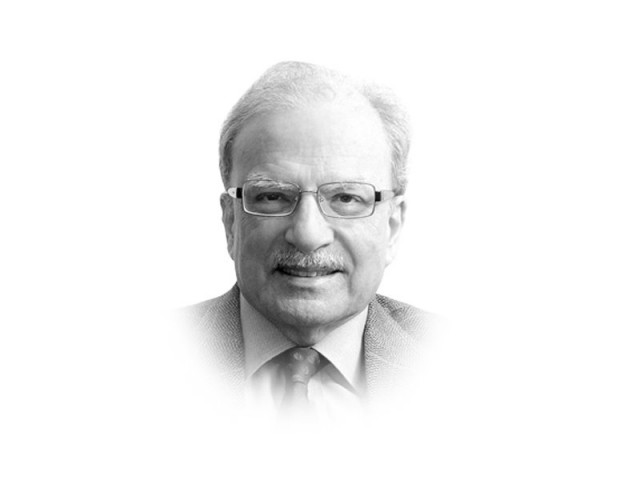Pakistan and the United States
For Pakistan, given the resources Washington could send Pakistan’s way, it made strategic sense to cultivate America.

The writer is a former caretaker finance minister and served as vice-president at the World Bank
In 1904, the British Indian government had agreed to partition the province of Bengal along communal lines, creating a Hindu dominant West Bengal and a Muslim majority East Bengal. That partition was reversed under pressure from the Indian National Congress in 1911. It was perhaps that history that may have persuaded British Prime Minister Clement Attlee to convey to the House of Commons in July 1947 his hope that “this severance may not endure”. He expected that the dominions of India and Pakistan his government had agreed to create would “in course of time come together to form one great Member State of the British Commonwealth of Nations”. That, of course, the government in Karachi was not prepared to let happen. But the Pakistani leadership believed that it needed external help to keep in place the line of partition the departing British had drawn. Very early on, Muhammad Ali Jinnah and his associates turned to the United States for help.
There was good reason for this early tilt towards Washington. The Second World War had resulted in a massive restructuring of the global political order. Although Britain was one of the victors, it had been seriously weakened by the long war effort. It could no longer assist its old colonies. The United States was the clear winner, especially when the Soviet Union stayed out of the deliberations to fashion a new economic and financial system that was put in place at Bretton Woods, a resort town in the American state of New Hampshire. The conferees at the Bretton Woods meeting agreed to create two institutions to rebuild war-ravaged Europe and develop the nations that were emerging from decades of colonial domination. It was clear from the very beginning that notwithstanding the participation of the British economist John Maynard Keynes in the New Hampshire talks, the Bretton Woods system made up of the Intentional Monetary Fund and the International Bank for Reconstruction and Development (now called the World Bank Group) would be dominated by Washington. However, in 1947, the Pakistani leadership was not thinking of assistance from these two institutions. It looked for direct American help. It sought this support on geopolitical grounds. In a revealing interview given by Jinnah to Margaret Bourke-White, a writer for the now-defunct Life magazine, Pakistan’s first governor general said that “America needs Pakistan more than Pakistan needs America”. With a flourish that was uncharacteristic of him, he described Pakistan as “the pivot of the world” since the country was placed on “the frontier on which the future position of the world revolves”. In writing about this interview, Bourke-White described Pakistan as the “creation of one clever man” and that “in Jinnah’s mind, the brave new nation had no other claim on America than this — that across a wild tumble of roadless mountain ranges lay the land of the Bolsheviks. I wondered whether the Quaid-e-Azam considered his new state only as an armoured buffer between opposing powers.”
Pakistan attempted to forge a relationship with the United States based on the concern about India’s perceived intentions towards the country the Pakistani leadership had founded and the perception that the United States could be made to take interest in the well-being of the new state. The Pakistani leadership of the time and the generations of leaders who followed looked for two types of help from the United States: economic assistance for developing a country that was woefully short of domestic resources and building up the military to keep India at bay.
A relationship based on this fear of India and perception about the likely interest of the United States was to govern the relationship between the two countries for almost seven decades. As Husain Haqqani puts it at the very beginning of his account of the relationship: “Amid frequent Pakistani charges of American betrayal, few Americans remember that Pakistan initiated the US-Pakistan alliance primarily to compensate for its economic and political disadvantages.” This was a transactional relationship on the part of Washington and a strategic one on the part of Islamabad. It is not surprising that it remained on a roller coaster the entire time. The United States got engaged whenever it needed Islamabad’s help. For Pakistan, however, given the resources Washington could send Pakistan’s way, it made strategic sense to cultivate America. During the first couple of years of the administration headed by Prime Minister Nawaz Sharif, we are likely to see a fundamental transformation in the way the two countries look at one another.
Published in The Express Tribune, March 3rd, 2014.
Like Opinion & Editorial on Facebook, follow @ETOpEd on Twitter to receive all updates on all our daily pieces.














COMMENTS
Comments are moderated and generally will be posted if they are on-topic and not abusive.
For more information, please see our Comments FAQ